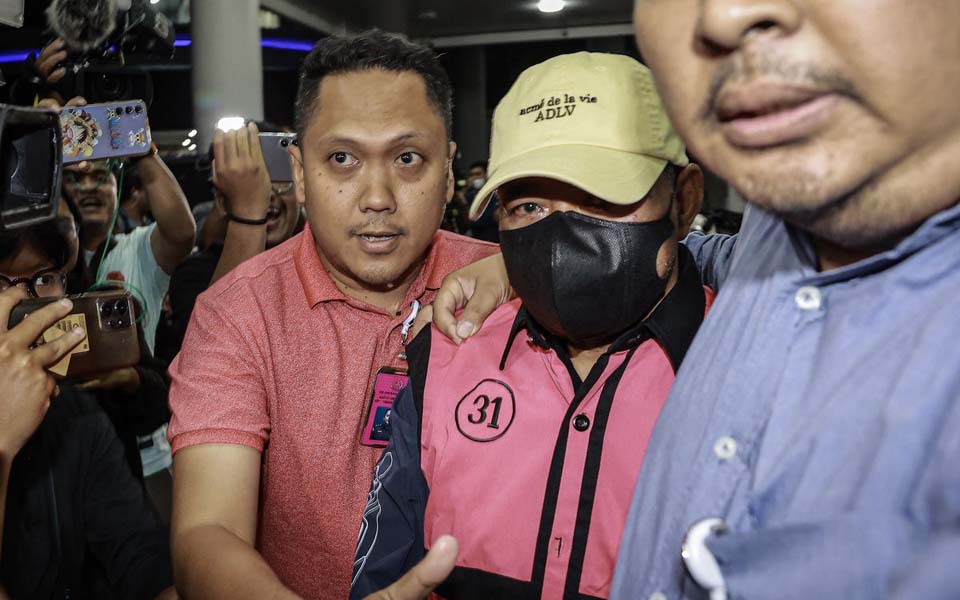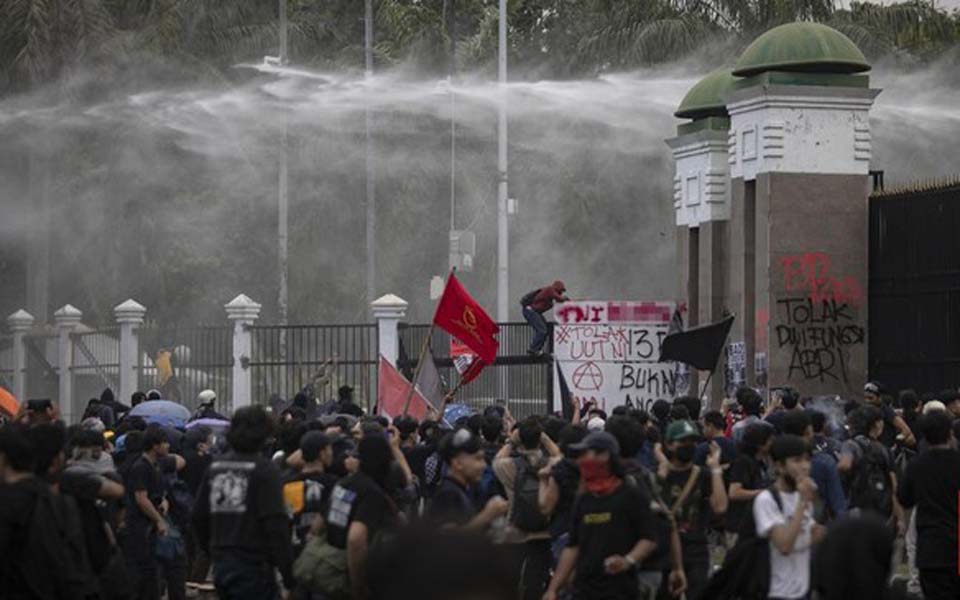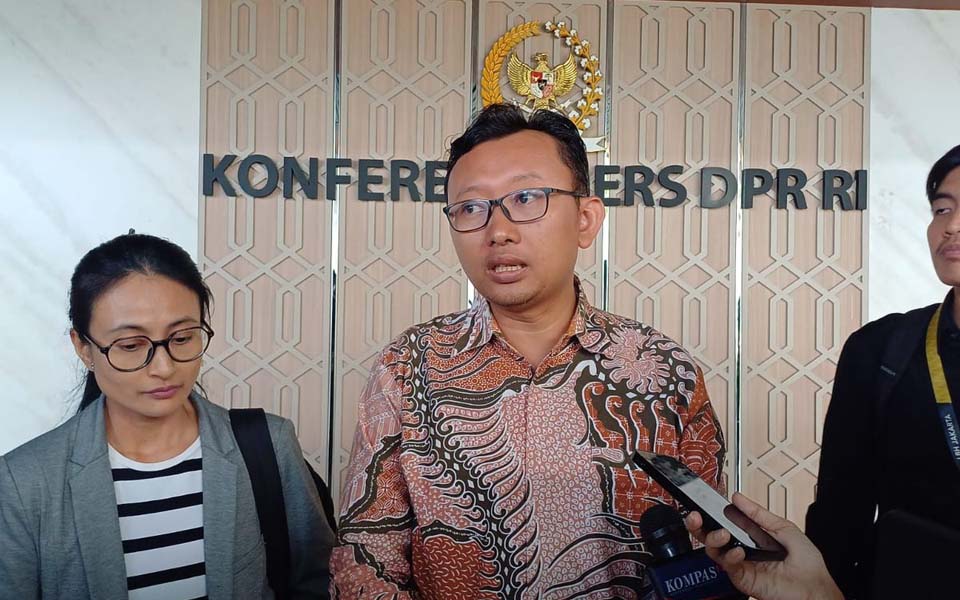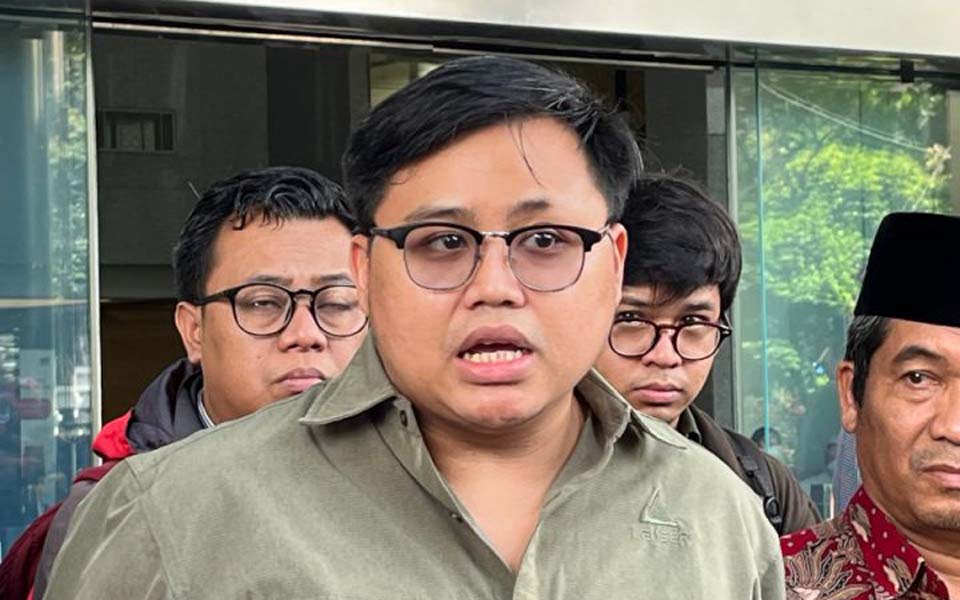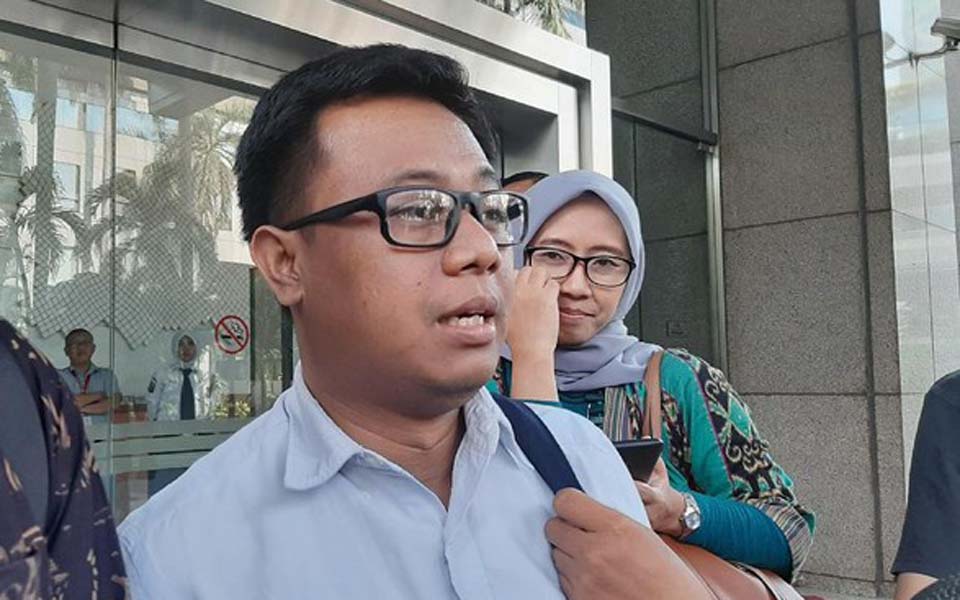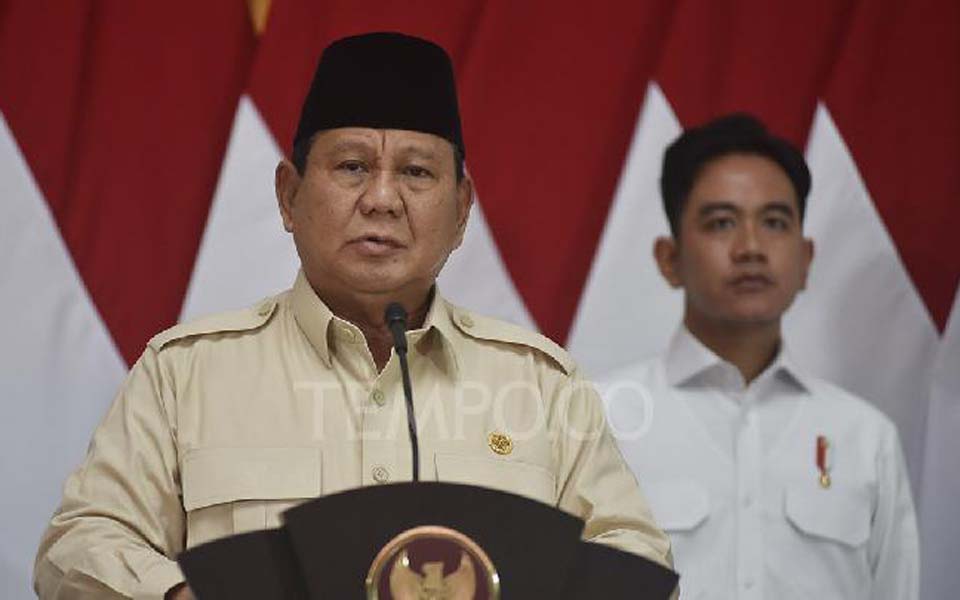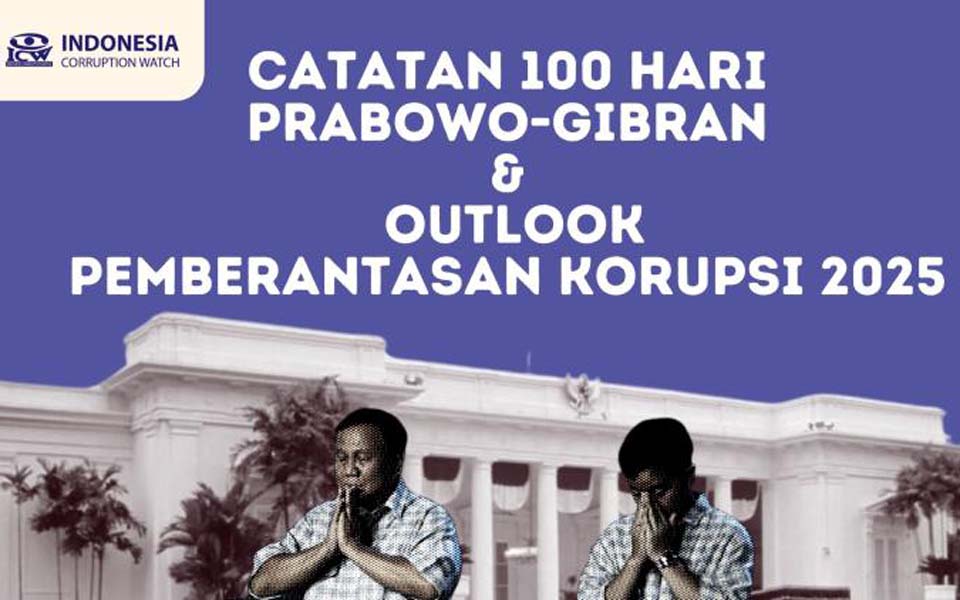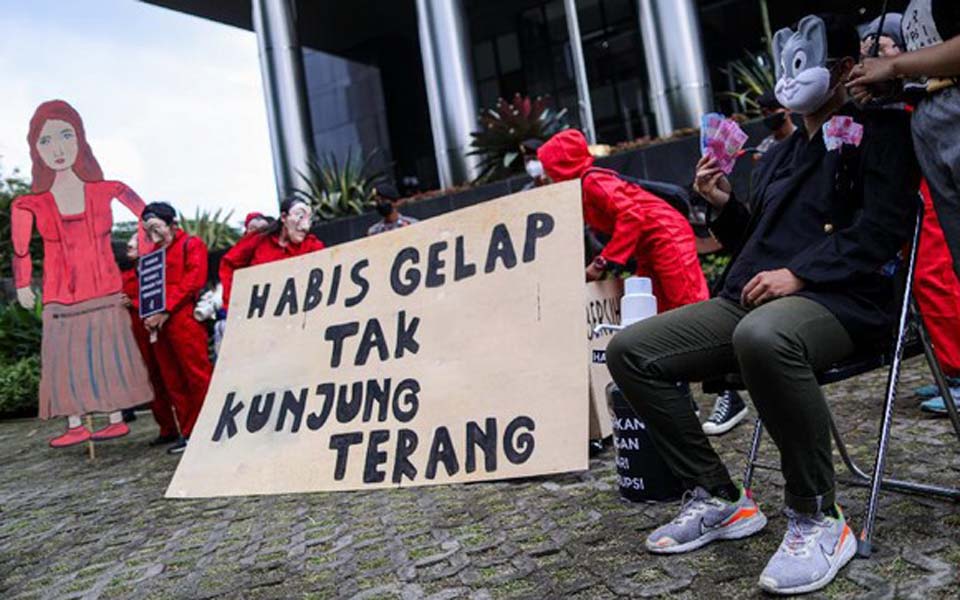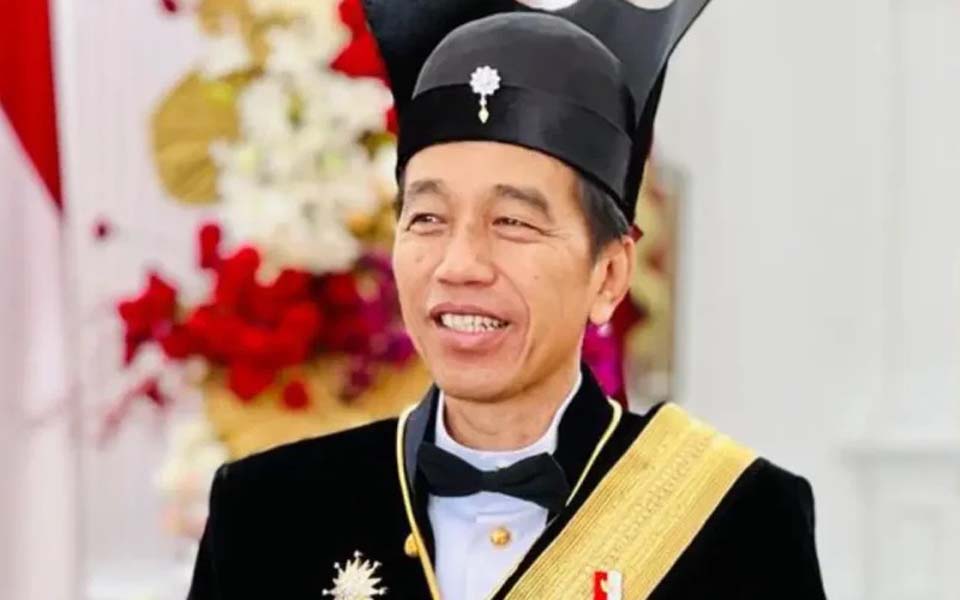Jakarta – Papua activist Surya Anta was released from prison in August after serving a nine-month sentence for makar (treason, subversion, rebellion). After leaving the jail, the former Papuan political prisoner (tapol) shared his experience while he was in Salemba prison in Central Jakarta.
Anta revealed the atrocious conditions at Salemba prison on his Twitter account. On the first day he entered Salemba prison, long-term inmates immediately tried to extort money from him and his colleagues. The amounts varied. Anta was asked for 1 million rupiah while his colleagues were asked for as much as 3 million rupiah.
“In the end the five of us paid 500,000 rupiah after the other prisoners found out we were activists, not children of government officials”, said Anta yesterday on his official Twitter account @Suryaanta.
Anta and the other Papuan activists, Ambrosius Mulait, Dano Tabuni, Isay Wenda and Charles Kossay, were initially placed in the receiving area (ruang penampungan) or orientation area (ruangan masa pengenalan lingkungan, mapaling) at the prison.
They lived in the mapaling area for a month or between November 18 and December 19 together with hundreds of other inmates.
Anta revealed that conditions in the receiving area were inhuman. While he was there, there were some 410 inmates gathered in one small space.
Not infrequently, the prisoners had to lie on their sides so they could sleep comfortably. Not only that, the water provided in the reception area was unfit to drink.
“There were only two toilets. Prisoners slept like sardines, not infrequently [we had to] lie on our sides to sleep. The water had a sticky taste. The inmates all had sore throats”, said Anta accompanied by a photograph that he uploaded. In the photograph hundreds of prisoners could be seen sleeping in rows press up pressed up each other.
In addition to this, Anta also found that the buying and selling of drugs was commonplace. He even witnessed how prisoners were free to sell drugs such as crystal methamphetamine (sabu) and cannabis to other inmates.
He even said that prison guards know about this but paid no heed to it.
After living for a month in the receiving area “barracks”, Anta and his colleagues were transferred to Block J, cell 18. They were transferred there after pressure from colleagues and activists campaigning outside the prison.
While occupying cell 18, Anta was shocked to discover that the adjacent cell – which was known as the “apotek” (chemist) – was used for the production of crystal methamphetamine.
“The cell above and behind Dano’s was the ‘Apotik’ cell, a cell for the sale of sabu. Prison officials knew about this. I was surprised that we were placed in cell J18 which had the sabu Apotik [adjacent to it]”, he said.
Anta uploaded several photographs that he had taken himself on a cell phone. Cracking a joke, he said that smart phones were commonplace and easily found in Salemba prison.
“Oh yes, how was I able to photograph this. Because there was a place for buying, selling and servicing mobile phones in the prison. There were food stalls. Prison officials knew about this. Perfumes were bought and sold. What there wasn’t, was prostitution, the long-time inmates said that before in 2016 there was”, said Anta.
In addition to this Anta also revealed the practice of the buying and selling of cells by rogue official. He said it was referred to as money for “cell entry tickets”. Anta said that the practice occurred when a prisoner paid an amount of money to occupy particular cells.
As a result there was a strata or social classes within the prison. Anta said that the prisoners who didn’t have money were forced to sleep in passageways because they were not able to pay for a “cell entry ticket”.
Meanwhile for prisoners who had enough money they could be placed in a cell in Block O which was estimated to have a “rental” fee of around 50-70 million rupiah.
“Rich prisoners, corruptors for example, could buy a cell in Block 0 for a price of 50-70 million. This doesn’t include the weekly fee. They didn’t need to stay in reception or the mapaling first like we did for a month. Prisoners from other blocks weren’t able to visit Block O”, said Anta.
Anta admitted to feeling very restricted during his time serving his sentence at the Salemba prison. He said that the state does not provide for all of the needs of the prisoners in jail.
He said that various basic goods were only provided by the prison in limited quantities. He and his fellow Papuan political prisoners had to cook and buy ingredients using their own money.
“We also bought our own water. Gallon bottles were bought and sold. If there was an electrical fault you paid with your own money. Other inmates paid money for cells and paid weekly installments. We didn’t pay because the prison authorities were worried over the public pressure about our case. And lobbying by our comrades so that we didn’t have to sleep in the passageway”, said Anta.
With the high cost of living in prison, Anta saw many inmates had to take on “additional jobs” such as prisoners who were forced to pickpocket, steal, service electronics or sell drugs.
“Because the cost of living in jail is high. Inmates survived in all sorts of ways. Some worked as pickpockets. There were those who sliced open fellow inmate’s pockets, serviced electronics, give massages. So there were also several tamping (fellow inmates) that had to pay. Selling rice. Selling drugs. Or they became BNN (debt collectors) or hatchet men”, said Anta.
CNN Indonesia has attempted to contact Corrections Directorate General Protocol and Public Relations Division Head Rika Apriyanti about Anta’s allegations but have yet to receive a response. (rzr/osc)
[Translated by James Balowski. The original title of the article was “Bobrok Rutan versi Eks Tapol Papua: Pemalakan hingga Narkoba”.]






